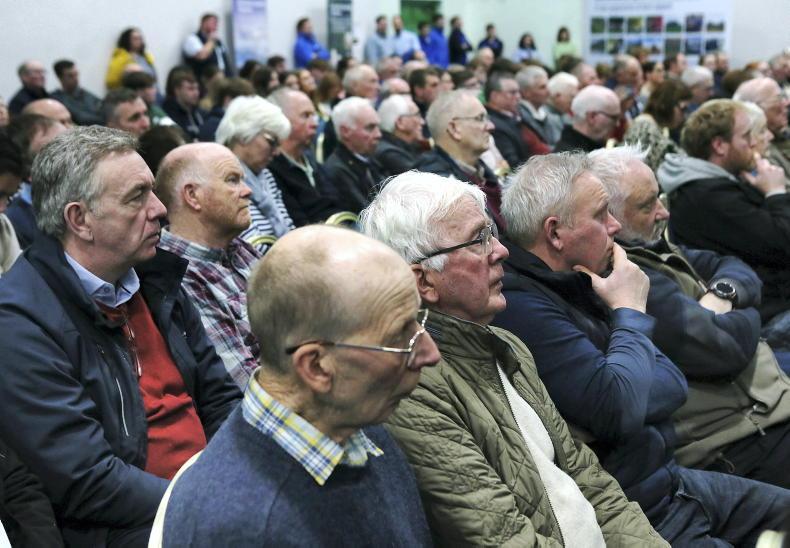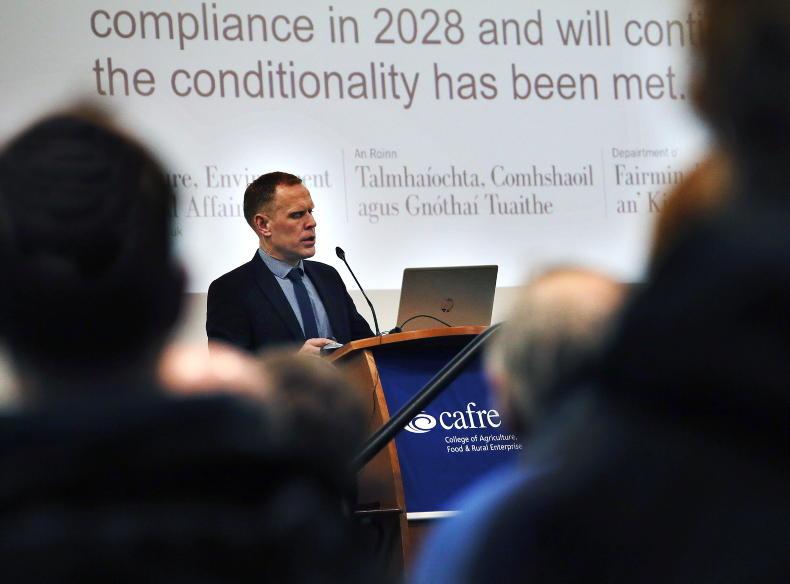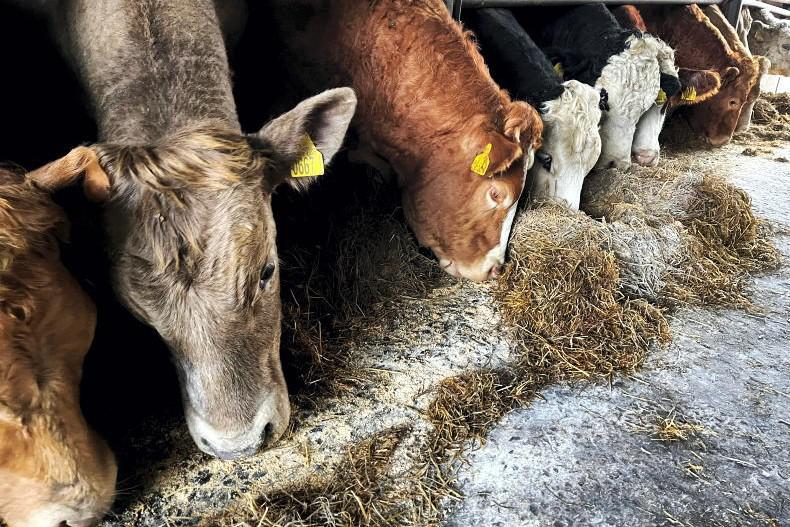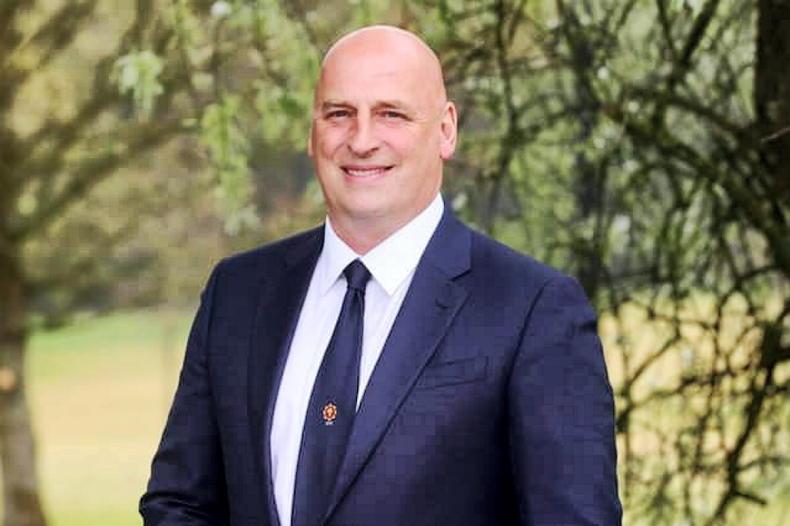One simple lapse in biosecurity could have significant financial consequences for a local poultry business, DAERA chief vet Dr Robert Huey has said.
Addressing an online poultry conference on Monday organised by the UFU and CAFRE, Huey explained that the current H5N1 strain of avian influenza (AI) lives in the gut of a bird and is passed on in faeces. The main way it gets into commercial poultry flocks is faeces picked up on the soles of feet or by machinery moving in and out of houses.
“It is very easy to carry in infection. With this particular virus, there is no evidence of aerial spread – it is almost all by people,” he maintained.
Migratory birds
Since the 1 October 2022 there have already been 138 bird flu outbreaks in Britain (mainly concentrated in turkey flocks in East Anglia), more than the entire winter season in 2021/22, so the risks are extremely high this year.
In 2021/22, the infection rate did settle down after an initial spike in cases.
“If I’m being critical, I think that first rise that year was mainly due to industry not being ready with their biosecurity – it really is that important,” said Huey.
He suggested what happens next in NI will depend on the industry maintaining a high level of biosecurity.
“You have to do the right thing every single time – if not, the virus will pick you up,” he said.
Different route
As well as the threat from the east, outbreaks of AI are also being seen in the US, so there is the added potential for migrating birds from the north to bring it to Ireland.
“That’s the one that’s worrying me at the moment,” said Huey.
While AI does not normally survive into the summer due to warmer temperatures, in 2022 it did manage to get into the local wild bird population so has remained persistent in the environment.
Huey maintained that the density of local infection is “nothing like East Anglia”. However, as well as a confirmed outbreak in captive birds at the Castle Espie Wetland Centre in Co Down back in October 2022, there have been two recent outbreaks in turkey flocks in Co Monaghan, close to the Fermanagh border.
Despite those outbreaks, DAERA only implemented a housing order in NI from 28 November, three weeks after a similar order in the Republic of Ireland.
“The UFU were screaming at me to house for about a month before I did it,” acknowledged Huey, who explained that it was when he saw swans back in Lough Beg outside Toome
that he realised the migratory bird season had started, which will add to local disease pressure.
“I don’t want to house too early because there is an animal welfare aspect to this, particularly the backyard flocks,” he said.
Turkeys wiped out in four days
Domestic turkeys tend to be highly susceptible to avian influenza (AI), and in one of the outbreaks in Co Monaghan only 70 out of around 4,000 were still alive four days after the infection was first noted.
“That’s what it does to your birds,” said Huey, who added that while the two premises were in close proximity, they operated separately, and it was likely that a nearby body of water (attracting wild birds) was the common source of infection.
Don’t delay reporting infection, farmers told
Any farmer who suspects a bird flu infection should immediately contact their vet, advised Robert Huey.
He explained that compensation is only paid out on birds culled or “the birds present on the day we wanted to cull,” so if a farmer delays reporting infection it could be to their own detriment as well as the wider poultry industry.
Wider outbreak
Huey accepted that if there is a wider outbreak in NI, it might not be possible to organise immediate culling in all circumstances, which could mean more birds die before DAERA is able to attend.
That scenario would need to be taken into account
when organising compensation.
“We are not in this to try to do anyone down or save public money,” he said.
Overwhelmed
He also acknowledged that if multiple outbreaks occur, DAERA could “quite quickly be overwhelmed”, although there are plans to bring in vets from other countries if that happened.
Where a house is cleared due to bird flu, it will normally be three to four months before it is cleansed and disinfected, and can be restocked. There is no compensation for lost income.
Vaccine not available in short term
A number of countries are working on bird flu vaccines, but none will be available in NI for this winter, Robert Huey said.
He said current options involve two doses by injection, three weeks apart, so in practice it would not work for the broiler sector.
However, he described H5N1 as “remarkably stable”, which does make it more commercially viable to develop a vaccine against this strain.
“My feeling is that it [a vaccine] is not multiple years away – it’s within a few years, if not next. There is a lot of people wanting it,” he said.
Tesco manager defends support to poultry sector
From March 2022 to March 2023, leading retailer, Tesco, will invest £27.5m in the UK egg sector to help cover the costs of handling, processing and producing eggs, John Kirkpatrick told attendees at the UFU/CAFRE poultry conference.
Originally from Co Antrim, Kirkpatrick, the Tesco agriculture manager for poultry and eggs robustly defended how the retailer has supported the sector. He pointed to five-year contracts which began in October 2022, handed out to five egg packers (including Skea Eggs in NI) meaning Tesco will continue to stock 100% British eggs. In addition, the Tesco poultry feed model adjusts to price changes in the market.
“The key thing for us is making sure our supply chain remains economically sustainable, in the short, medium and long term,” said Kirkpatrick.
It was put to him that egg suppliers are only getting 10p per egg, yet retailers are selling eggs for 19-30p each depending on size, so where is the profit going? “It would be inappropriate for me to comment on that question,” responded Kirkpatrick.
He said he recognised the challenges faced by producers, but pointed to the competitive retail market in the UK, and the cost of living crisis which is leading to consumers trading down in many cases.
Looking to the future, he reiterated Tesco’s commitment that eggs from enriched cages (colony systems) will be phased out by 2025. “By early 2024, our public commitment, which was made in 2016, will be delivered, and delivered in full,” he said.
Emissions
On the drive to net zero greenhouse gas emissions, Kirkpatrick said Tesco will continue to work on the responsible sourcing of soya.By 2025, all feed within its supply chain will be from regions that are verified as deforestation free.
He also highlighted work in England looking at the possibility of insect meal as an alternative protein source in poultry diets. While there are still some legislative hurdles to overcome, the plan is to take 80,000t of food waste from Tesco annually, which will be fed to Black Soldier Fly Larvae.
“This is a huge opportunity to step change the way in which we drive broiler production going forward – to create that circular economy, utilise waste streams and take cost out of the supply chain,” said Kirkpatrick.
Read more
Complications with bird flu vaccine rollout
British turkeys ‘dropping like flies’ as bird flu ravages sector
One simple lapse in biosecurity could have significant financial consequences for a local poultry business, DAERA chief vet Dr Robert Huey has said.
Addressing an online poultry conference on Monday organised by the UFU and CAFRE, Huey explained that the current H5N1 strain of avian influenza (AI) lives in the gut of a bird and is passed on in faeces. The main way it gets into commercial poultry flocks is faeces picked up on the soles of feet or by machinery moving in and out of houses.
“It is very easy to carry in infection. With this particular virus, there is no evidence of aerial spread – it is almost all by people,” he maintained.
Migratory birds
Since the 1 October 2022 there have already been 138 bird flu outbreaks in Britain (mainly concentrated in turkey flocks in East Anglia), more than the entire winter season in 2021/22, so the risks are extremely high this year.
In 2021/22, the infection rate did settle down after an initial spike in cases.
“If I’m being critical, I think that first rise that year was mainly due to industry not being ready with their biosecurity – it really is that important,” said Huey.
He suggested what happens next in NI will depend on the industry maintaining a high level of biosecurity.
“You have to do the right thing every single time – if not, the virus will pick you up,” he said.
Different route
As well as the threat from the east, outbreaks of AI are also being seen in the US, so there is the added potential for migrating birds from the north to bring it to Ireland.
“That’s the one that’s worrying me at the moment,” said Huey.
While AI does not normally survive into the summer due to warmer temperatures, in 2022 it did manage to get into the local wild bird population so has remained persistent in the environment.
Huey maintained that the density of local infection is “nothing like East Anglia”. However, as well as a confirmed outbreak in captive birds at the Castle Espie Wetland Centre in Co Down back in October 2022, there have been two recent outbreaks in turkey flocks in Co Monaghan, close to the Fermanagh border.
Despite those outbreaks, DAERA only implemented a housing order in NI from 28 November, three weeks after a similar order in the Republic of Ireland.
“The UFU were screaming at me to house for about a month before I did it,” acknowledged Huey, who explained that it was when he saw swans back in Lough Beg outside Toome
that he realised the migratory bird season had started, which will add to local disease pressure.
“I don’t want to house too early because there is an animal welfare aspect to this, particularly the backyard flocks,” he said.
Turkeys wiped out in four days
Domestic turkeys tend to be highly susceptible to avian influenza (AI), and in one of the outbreaks in Co Monaghan only 70 out of around 4,000 were still alive four days after the infection was first noted.
“That’s what it does to your birds,” said Huey, who added that while the two premises were in close proximity, they operated separately, and it was likely that a nearby body of water (attracting wild birds) was the common source of infection.
Don’t delay reporting infection, farmers told
Any farmer who suspects a bird flu infection should immediately contact their vet, advised Robert Huey.
He explained that compensation is only paid out on birds culled or “the birds present on the day we wanted to cull,” so if a farmer delays reporting infection it could be to their own detriment as well as the wider poultry industry.
Wider outbreak
Huey accepted that if there is a wider outbreak in NI, it might not be possible to organise immediate culling in all circumstances, which could mean more birds die before DAERA is able to attend.
That scenario would need to be taken into account
when organising compensation.
“We are not in this to try to do anyone down or save public money,” he said.
Overwhelmed
He also acknowledged that if multiple outbreaks occur, DAERA could “quite quickly be overwhelmed”, although there are plans to bring in vets from other countries if that happened.
Where a house is cleared due to bird flu, it will normally be three to four months before it is cleansed and disinfected, and can be restocked. There is no compensation for lost income.
Vaccine not available in short term
A number of countries are working on bird flu vaccines, but none will be available in NI for this winter, Robert Huey said.
He said current options involve two doses by injection, three weeks apart, so in practice it would not work for the broiler sector.
However, he described H5N1 as “remarkably stable”, which does make it more commercially viable to develop a vaccine against this strain.
“My feeling is that it [a vaccine] is not multiple years away – it’s within a few years, if not next. There is a lot of people wanting it,” he said.
Tesco manager defends support to poultry sector
From March 2022 to March 2023, leading retailer, Tesco, will invest £27.5m in the UK egg sector to help cover the costs of handling, processing and producing eggs, John Kirkpatrick told attendees at the UFU/CAFRE poultry conference.
Originally from Co Antrim, Kirkpatrick, the Tesco agriculture manager for poultry and eggs robustly defended how the retailer has supported the sector. He pointed to five-year contracts which began in October 2022, handed out to five egg packers (including Skea Eggs in NI) meaning Tesco will continue to stock 100% British eggs. In addition, the Tesco poultry feed model adjusts to price changes in the market.
“The key thing for us is making sure our supply chain remains economically sustainable, in the short, medium and long term,” said Kirkpatrick.
It was put to him that egg suppliers are only getting 10p per egg, yet retailers are selling eggs for 19-30p each depending on size, so where is the profit going? “It would be inappropriate for me to comment on that question,” responded Kirkpatrick.
He said he recognised the challenges faced by producers, but pointed to the competitive retail market in the UK, and the cost of living crisis which is leading to consumers trading down in many cases.
Looking to the future, he reiterated Tesco’s commitment that eggs from enriched cages (colony systems) will be phased out by 2025. “By early 2024, our public commitment, which was made in 2016, will be delivered, and delivered in full,” he said.
Emissions
On the drive to net zero greenhouse gas emissions, Kirkpatrick said Tesco will continue to work on the responsible sourcing of soya.By 2025, all feed within its supply chain will be from regions that are verified as deforestation free.
He also highlighted work in England looking at the possibility of insect meal as an alternative protein source in poultry diets. While there are still some legislative hurdles to overcome, the plan is to take 80,000t of food waste from Tesco annually, which will be fed to Black Soldier Fly Larvae.
“This is a huge opportunity to step change the way in which we drive broiler production going forward – to create that circular economy, utilise waste streams and take cost out of the supply chain,” said Kirkpatrick.
Read more
Complications with bird flu vaccine rollout
British turkeys ‘dropping like flies’ as bird flu ravages sector










SHARING OPTIONS